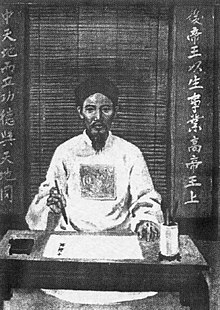Vietnamese philosophy
[2] Due to the influence of Confucianism, the feudal state of Vietnam placed early and significant emphasis on expanding education, with a focus on nurturing talented individuals and compiling historical records.
[4] In times of hardship, many individuals valiantly fought and made sacrifices for righteousness, driven by a moral spirit of humanity and a patriotic tradition.
However, Confucianism has also been utilized as a tool by authoritarian regimes to uphold the status quo, often transforming loyalty into an impediment to challenging oppressive forces.
The pursuit of knowledge was often driven by a desire for scholarly recognition, leading to a focus on fame and position rather than freedom, independence, and self-reliance.
Living in harmony and stability has its allure, but it often requires compliance, tolerance, deference to authority, and a reluctance to engage in reform and progress.

